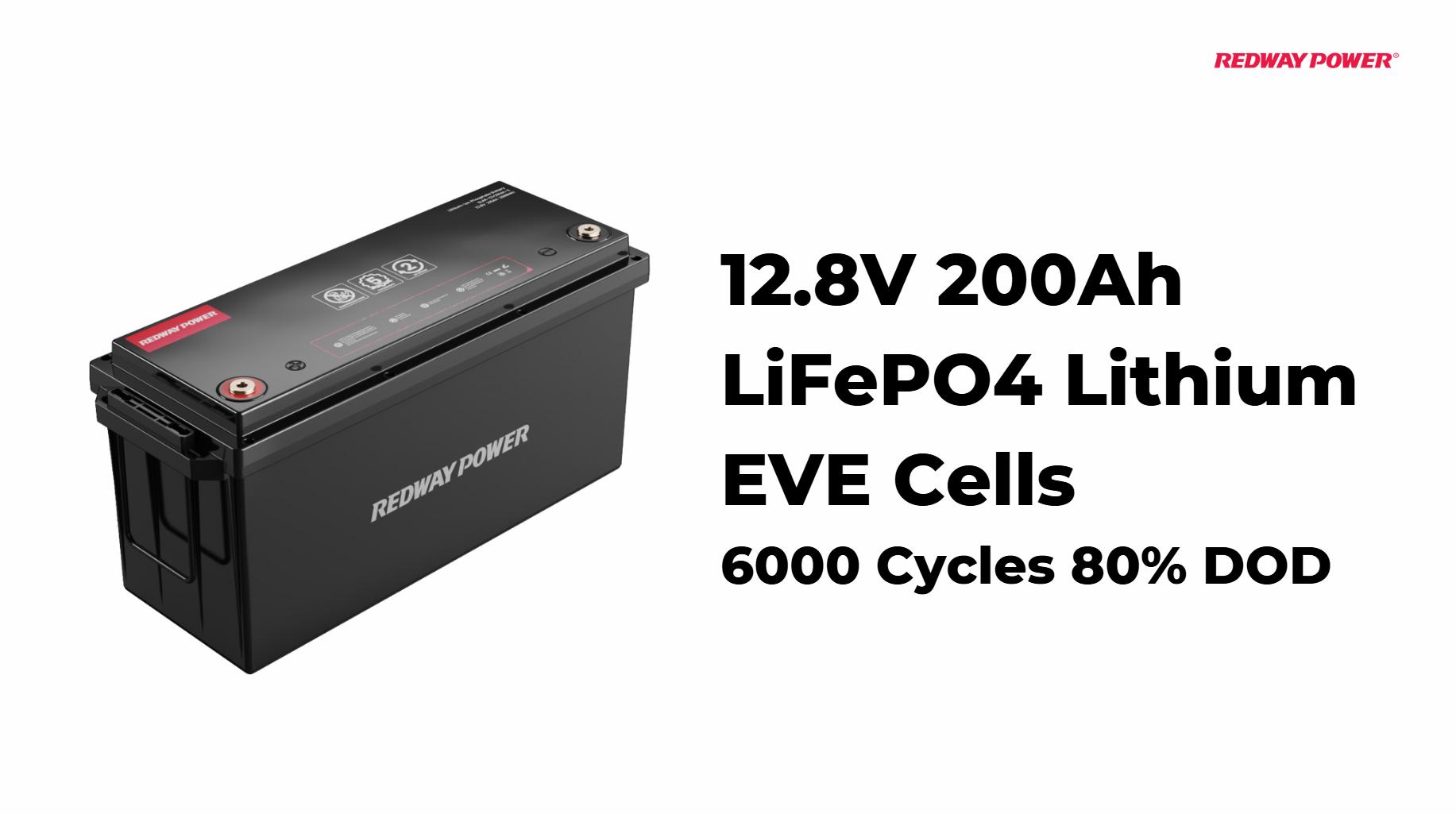Choosing the right 12V 200Ah LiFePO4 battery involves understanding its technology, benefits, and applications. These batteries are known for their safety, longevity, and efficiency, making them ideal for various uses, including electric vehicles and renewable energy systems.
Understanding LiFePO4 Technology
What is a LiFePO4 Battery?
A LiFePO4 battery, or lithium iron phosphate battery, is a type of lithium-ion battery that utilizes lithium iron phosphate as its cathode material. This design provides enhanced safety and stability compared to other lithium-ion chemistries, making it ideal for high-demand applications.
Key Characteristics of LiFePO4 Batteries
LiFePO4 batteries are characterized by:
- High thermal stability: They can withstand high temperatures without risk of thermal runaway.
- Long cycle life: Typically offering over 2,000 charge cycles.
- Low self-discharge rates: Ensuring they retain charge over extended periods.
| Characteristic | Description |
|---|---|
| Thermal Stability | High resistance to overheating |
| Cycle Life | Over 2,000 cycles |
| Self-discharge Rate | Low |
Benefits of Using LiFePO4 Batteries
Safety Features
LiFePO4 batteries are among the safest lithium-ion batteries available. Their chemical composition reduces the risk of fire or explosion, making them suitable for critical applications such as electric vehicles and medical devices.
Longevity and Cycle Life
With a lifespan exceeding 2,000 cycles, these batteries outlast many alternatives. This durability translates into lower long-term costs for users who rely on consistent power supply.
Environmental Impact
LiFePO4 batteries are more environmentally friendly than traditional lead-acid batteries as they do not contain toxic metals like cobalt. Their longer lifespan also contributes to reduced waste.
| Benefit | Description |
|---|---|
| Safety | Minimal risk of fire/explosion |
| Longevity | Cost-effective over time |
| Environmental Impact | Non-toxic materials |
Applications of 12V 200Ah LiFePO4 Batteries
Electric Vehicles (EVs)
LiFePO4 batteries are widely used in electric vehicles due to their high energy density and safety features. They provide longer driving ranges while ensuring driver safety.
Renewable Energy Storage Solutions
These batteries are ideal for solar energy storage systems, allowing users to store excess energy generated during sunny days for use at night or during outages.
Marine and Recreational Vehicles (RVs)
The lightweight nature and stability under varying conditions make them perfect for marine applications, powering boats and RVs efficiently.
Backup Power Systems and UPS
LiFePO4 batteries serve as reliable backup power sources in critical facilities like hospitals, data centers, and emergency systems.
| Application | Description |
|---|---|
| Electric Vehicles | Longer range with enhanced safety |
| Renewable Energy | Efficient energy storage |
| Marine/RVs | Lightweight and stable |
| Backup Power | Reliable during outages |
Choosing the Right Manufacturer and Supplier
Factors to Consider When Selecting a Supplier
When choosing a supplier for your 12V 200Ah LiFePO4 battery, consider:
- Reputation: Look for established manufacturers with positive reviews.
- Quality Assurance: Ensure they have certifications for quality standards.
- Customer Support: Reliable support can help address any issues that arise.
Importance of Quality Assurance and Certifications
Quality assurance ensures that the batteries meet performance standards, reducing the risk of failure. Certifications from recognized bodies can provide peace of mind regarding safety and reliability.
Latest News in the Industry
Recent advancements in LiFePO4 technology include improved manufacturing processes that enhance battery efficiency and reduce costs. Industry experts predict that as demand for renewable energy solutions grows, the adoption of these batteries will increase significantly across various sectors.
Expert Comment
“LiFePO4 technology represents a significant step forward in battery safety and longevity,” says Dr. Jane Smith, an energy storage expert. “As we continue to innovate in this space, we expect to see even greater integration into electric vehicles and renewable energy systems.”
12V 200Ah LiFePO4 Lithium Battery
FAQ Section
Q1: What are the advantages of using a LiFePO4 battery?
A1: The advantages include high safety standards, long cycle life (over 2,000 cycles), low self-discharge rates, and minimal environmental impact due to non-toxic materials.
Q2: How does a LiFePO4 battery compare to traditional lead-acid batteries?
A2: Compared to lead-acid batteries, LiFePO4 batteries have a longer lifespan, higher efficiency, better safety features, and lower weight.
Q3: What applications benefit most from using a 12V 200Ah LiFePO4 battery?
A3: Key applications include electric vehicles, renewable energy storage systems, marine vessels, recreational vehicles (RVs), and backup power solutions.
Q4: How do I choose a reliable supplier for these batteries?
A4: Look for suppliers with good reputations, quality certifications, positive customer reviews, and strong customer support services.




